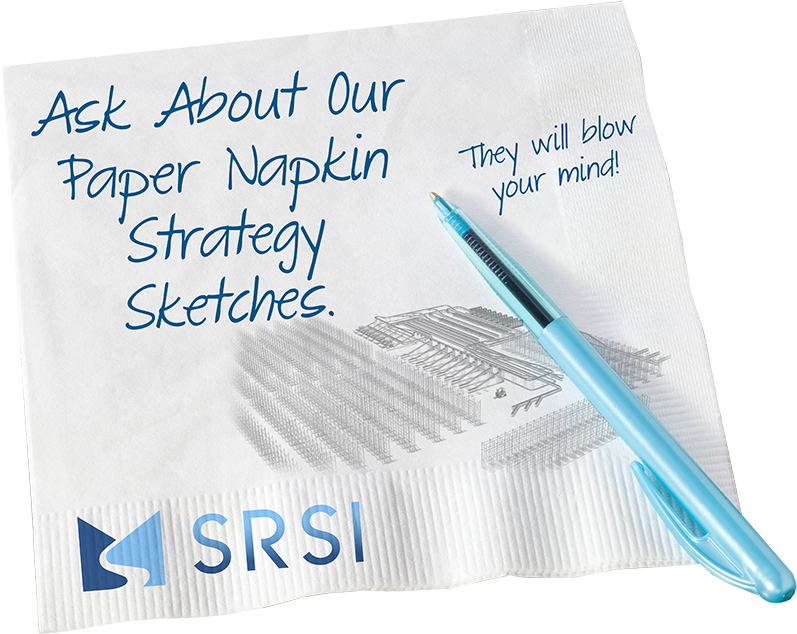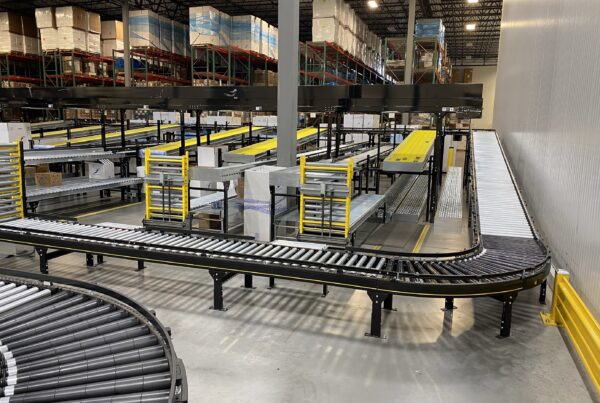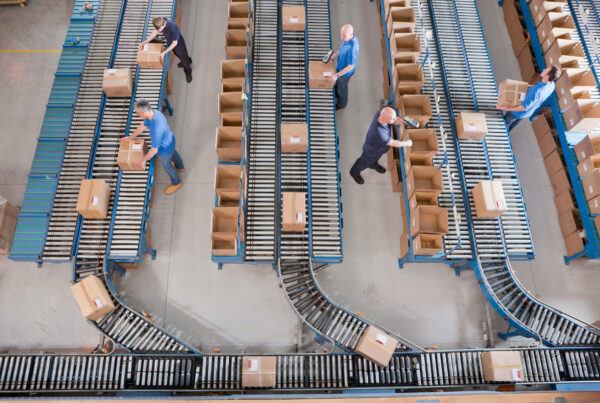7 Factors to Consider When Choosing the Best Material Handling Equipment
Material handling is a crucial aspect of every industry that requires materials to be stored or moved between locations. Reliable material-handling equipment ensures safer, faster, and more efficient material movement through a range of processes, from manufacturing to distribution, storage, and delivery.
Given the importance of material handling equipment, the sector has evolved significantly over the years. Today, there is specialty equipment to address a wide range of material-handling needs across industries. A range of tools, accessories, machines, and vehicles are available for material handling.
While this evolution offers plenty of choices for industries, it also presents a challenge in equipment selection. A wrong choice of equipment is detrimental to the business as it reduces process efficiency and results in loss of money. Luckily, you can trust the SRSI team equipped with decades of experience for guidance.
How do you ensure that you find material handling equipment that is right for your business?
Factors affecting the selection of Material Handling Equipment
Discussed here are key factors that you need to focus on during your next material-handling procurement:
Material Properties
The process of choosing the right material-handling equipment starts with a listing of the properties of the materials to be handled.
- Is the material solid, liquid, or gaseous?
- What are the shape and dimensions of the material?
- How much does each material unit weigh?
- Are the materials corrosive, sensitive, or toxic?
- Do materials need special handling because of their fragile nature?
A consideration of these primary factors enables you to shortlist possible material handling machinery and equipment from the available range. Say, you are moving food items. They are known for being perishable and environment-sensitive. You could start your equipment search by looking at options in hygienic stainless steel.
If materials are corrosive, toxic, or fragile, then the range of applicable equipment becomes narrower as only specific equipment can fulfill such criteria.
Facility Space Allowances
Consider the space where the material-handling equipment will be operated. If you are planning to use a crane or hoist, then a low-ceiling floor can prevent the use of such equipment.
Other space-related factors that can influence your choice of equipment:
- Are you looking for automated, semi-, or manually-operated material-handling systems?
- Does your facility need to adhere to special or additional regulatory norms for safety, environmental protection, or other factors, given your process operations?
Structural Strength of the Facility
The structural strength of the facility is also an important factor in determining the appropriate material-handling equipment.
Consider the following when assessing your facility’s structural strength:
- What is the facility floor capacity? Is the floor capable of handling the weight and operation of material-handling equipment?
- Can the facility withstand continuous equipment operation in case of frequent material movements?
- Are the ceiling and door dimensions suitable for the material-handling equipment you are considering?
- If you are considering customized equipment, will the floor space and capacity allow for such equipment accommodation?
Process Format
If your process involves only fixed and finite points, then the best material handling equipment would be chutes or conveyors. If your process is dynamic, requiring materials to change line directions constantly, then mobile equipment would be ideal. Consider equipment such as trucks in such cases.
Customized solutions, something SRSI specializes in, is often a great consideration when investing in material handling equipment.
Say your process involves multiple sub-processes such as weighing materials, transporting them, and packaging them. Your process can benefit from customized equipment with automated functions.
Intended Equipment Operation
Consider the operations your material-handling equipment needs to fulfill. If material handling is for storing, then the frequent material movement is not necessary. In such cases, equipment such as pallets, racks, containers, and shelving, is ideal.
If your operation involves handling bulk materials, then specialized equipment that moves and processes material is ideal. Your operation can be made more efficient with equipment such as conveyors, elevators, trucks, and silos.
If your operation involves continuous material movement and processing, then you should consider automated equipment as it saves time, effort, and costs.
Material Handling Equipment Supplier
Choosing a reliable equipment supplier is key to ensuring equipment quality and employee safety. Consider supplier reputation, choice of equipment and availability, and after-sales service, to choose the right supplier. SRSI will help you during this process and can ensure quality products with our strategic supplier partnerships. We also provide a unique after-sales service to support you in your growth and success.
Reliable equipment is important for employee productivity and safety. If your process involves heavy material moving, then automated machinery can reduce the workload for your employees and free them up for other processes.
Equipment safety is also a legal requirement. Train your employees in equipment operation and maintenance to prevent risks of injury, and equipment damage as well.
Cost Factors & Total Cost of Ownership
In addition to the equipment price, consider other factors to understand the benefits you may accrue in the long run due to the purchase.
- Are there additional expenses for setting the equipment and operating it? For example, would you need additional accessories to get the machinery up and running?
- What are the operating and maintenance costs of the equipment?
- What are the cost savings that the equipment could deliver following the process efficiency achieved?
It is essential to get your cost considerations right as they often make or break equipment procurement.
In Conclusion
A focus on materials, processes, facility, costs, and suppliers, is crucial to increase your chances of success in procuring the best material handling equipment. Equipment that best fits your needs maximizes operational efficiency, process output, and employee productivity and safety.
The right material-handling equipment enables you to fulfill even complex operations with ease. With the right equipment, you can scale your business for future growth. Contact us today to get started: (817) 953-8740.
 Skip to main content
Skip to main content






